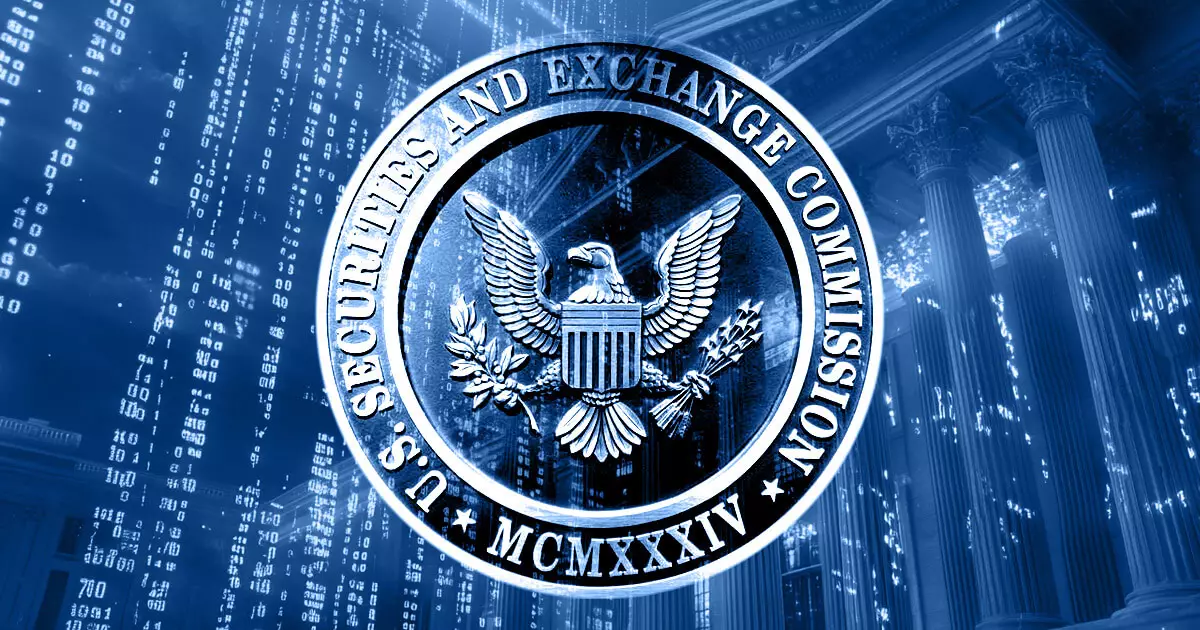The landscape of cryptocurrency investment is undergoing notable changes, particularly with the U.S. Securities and Exchange Commission (SEC) actively reviewing proposals for new exchange-traded funds (ETFs). Recent filings have sparked interest in the potential approval of Grayscale’s spot Litecoin (LTC) ETF and an innovative redemption framework for BlackRock’s iShares Bitcoin ETF. These developments indicate a crucial moment in the evolution of regulatory attitudes toward digital asset investment vehicles.
The amendment for Grayscale’s proposed Litecoin ETF signifies a pivotal stride in the ongoing quest for regulatory approval of cryptocurrency investment products. Analysts, such as Bloomberg’s Eric Balchunas, have noted that the SEC’s engagement with this application is a clear indicator of increasing regulatory momentum. Balchunas’ assertion that the Litecoin ETF is “checked all the boxes” for approval reflects a broader industry sentiment that Litecoin is increasingly recognized as a commodity, removing some hurdles that securities typically face in regulatory reviews.
Furthermore, the involvement of Nasdaq in submitting a form seeking approval for this ETF adds an additional layer of credibility to the proposition. This strategic move may enhance investor confidence, suggesting that regulatory bodies could be becoming more adaptable in their assessments of cryptocurrency assets. Interestingly, some analysts speculate that the SEC might choose to approve multiple crypto ETFs at once, potentially setting a precedent that would reshape the future of crypto investments significantly.
On another front, BlackRock’s request for in-kind redemptions in its iShares Bitcoin ETF highlights an innovative reform that could drastically alter operational dynamics for institutional investors. The proposed mechanism allows Bitcoin to be directly transferred to investors during redemptions, thereby streamlining the process and minimizing the tax implications that typically accompany cash transactions. The shift towards in-kind redemptions aligns with industry trends striving for greater liquidity and efficiency in ETF operations.
This strategic adjustment is poised to enhance the attractiveness of Bitcoin ETFs, particularly among large-scale investors who face considerable challenges related to capital gains taxes and slippage. By facilitating a more efficient redemption process, BlackRock’s approach could create a more favorable investment environment, positioning their ETF as a preferred option in an increasingly competitive market landscape.
The SEC’s recent activities signal a potential transformation within the regulatory framework governing cryptocurrency investment instruments. With the groundwork laid for the approval of Bitcoin ETFs, Litecoin’s emergence as a potential second player in this space could lead to broader acceptance of altcoin investment vehicles. Analysts and market participants are closely monitoring the situation, particularly as the approval of in-kind redemption models may influence the operational framework of existing and future ETFs.
As interest in digital asset investment continues to rise, the SEC’s decisions regarding these filings could ultimately shape the trajectory of the cryptocurrency market. If approved, these innovative structures will not only enhance investor experiences but also reinforce the legitimacy of cryptocurrency investments in traditional financial markets. The unfolding developments in ETF regulations could signal a new chapter in the ongoing integration of cryptocurrencies into mainstream finance, with ramifications that extend well beyond the present moment.

